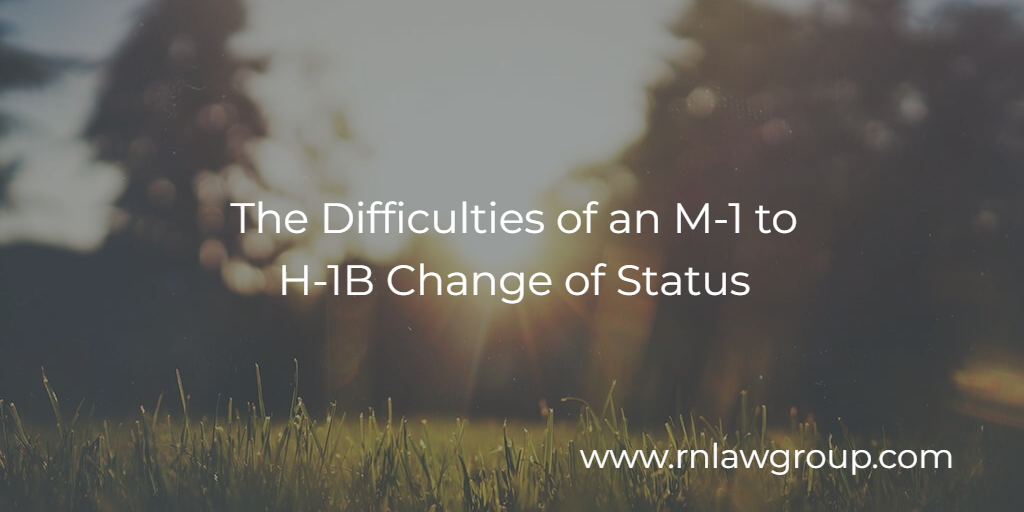
The Difficulties of an M-1 to H-1B Change of Status
The M-1 visa is an option utilized by international students when their educational pursuits may not meet the requirements of an F-1 or J-1 visa. Typically, foreign nationals enter on M-1 visas to pursue nonacademic or vocational studies. There are several differences between the M-1 and F-1 visa. Key among them is how the M-1 visa can impact a foreign nationals attempt to change status from a student visa to an H-1B.
An M-1 visa requires a foreign national to engage in a full course of study. This is commonly met by attending an institution with at least 12 semesters or quarter hours that requires anyone attending full-time to be charged full tuition. It can also apply to a post-secondary vocational or business school that grants associates degrees. Examples of common M-1 studies include cooking classes, technical courses, mechanical classes, flight school, and cosmetology. While the application process may differ based on the school one is applying to all successful approvals of applications will result in the issuance of an I-20. From there a foreign national can apply for the M-1 visa at a U.S. Embassy or Consulate in their home country.
Upon completion of their vocational studies M-1 students can work full time in a practical training role that is related to their vocation for up to six months. However, if an M-1 visa holders decides to try and change status to H-1B their application will be treated very differently from an F-1 visa holder. Essentially, if an applicant for change of status from M-1 to H-1B would not be eligible for the H status without the education and training received in M-1 status USCIS will deny the application. This differs significantly from an F-1 visa holder who is allowed to use all education and training obtained while studying in the states in order to qualify for the proffered H-1B position.
So, can an M-1 visa holder change status to H-1B at all? The answer is yes, but only in circumstances in which they individual qualified for the proffered specialty occupation position without using any of their experience/education obtained while in the U.S. on their M-1. An example of this would be someone who obtained a Bachelor of Technology from their home country and then entered the US on an M-1 visa to study culinary arts. If this individual wished to apply for an H-1B they could likely qualify for a computer systems analyst position based on their foreign bachelor’s degree. However, if they wanted to qualify for an H-1B visa as a chef they would not be successful as none of their education and job experience gained while on their M-1 could be used for the H-1B.
Due to the very difficult hurdle created by regulations changing status from M-1 to H-1B should be viewed as a high-risk filing. One wishing to explore the possibility of changing status to H-1B, or sponsoring someone on M-1 to change status to H-1B, should consult a qualified immigration attorney before proceeding with registration for the upcoming H-1B lottery.
By: Staff Attorney
